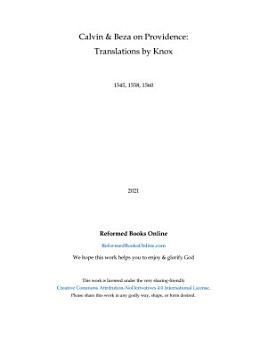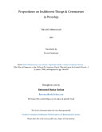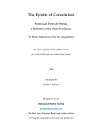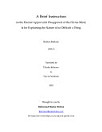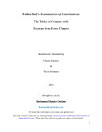Calvin & Beza on Providence: Translations by Knox
About this ebook
The Libertines, having such a high view of God’s eternal decree, held to what is known in philosophy as a form of Occasionalism, that all events that occur are directly and immediately worked by God. True secondary causation is eliminated. One main problem with this is that it makes God the Author of Sin, something that the Libertines expressly affirmed. Calvin here not only repudiates this blasphemy, but he also lays out three ways (and only three ways) in which God brings all things to pass through his providence, herein establishing true secondary causation.
Beza provides 29 propositions on providence from his work against Sebastian Castellio, touching upon similar themes as Calvin. Both Calvin and Beza’s pieces, while making some basic distinctions, expound the Lord’s providence in a way that is easy to grasp with illustrations from Scripture and human life.
About the author
John Calvin (1509–1564) was a French-born, Swiss theologian, pastor and reformer in Geneva during the Protestant Reformation.
Theodore Beza (1519–1605) was a French-born, Swiss theologian, reformer and scholar who played an important role in the Protestant Reformation. Beza was Calvin's successor in Geneva.
John Knox (c. 1514 – 1572), influenced by Calvin, was a Scottish minister and leading reformer in Scotland's reformation.
